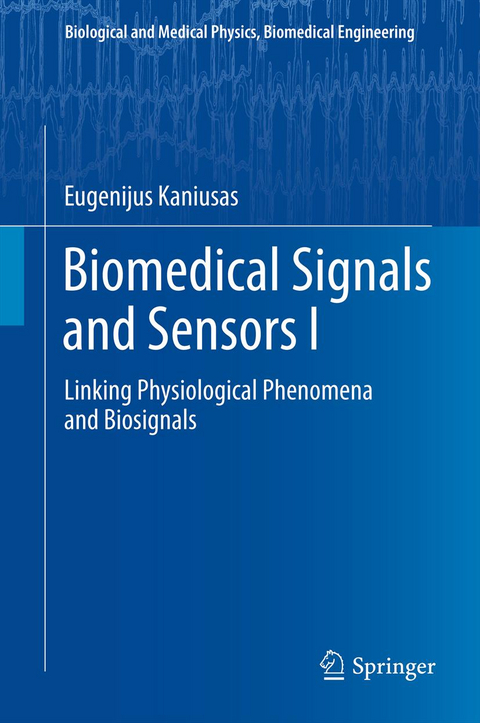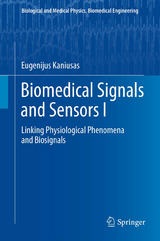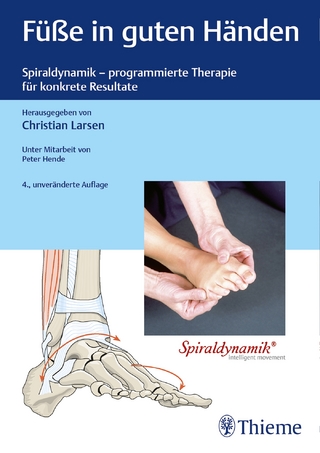Biomedical Signals and Sensors I
Linking Physiological Phenomena and Biosignals
Seiten
2012
|
2012
Springer Berlin (Verlag)
978-3-642-24842-9 (ISBN)
Springer Berlin (Verlag)
978-3-642-24842-9 (ISBN)
This two-volume set focuses on the interface between physiologic mechanisms and diagnostic human engineering. Readers will gain a technical understanding of the underlying concepts necessary to reasonably interpret the corresponding biosignals.
This two-volume set focuses on the interface between physiologic mechanisms and diagnostic human engineering. Today numerous biomedical sensors are commonplace in clinical practice. The registered biosignals reflect mostly vital physiologic phenomena. In order to adequately apply biomedical sensors and reasonably interpret the corresponding biosignals, a proper understanding of the involved physiologic phenomena, their influence on the registered biosignals, and the technology behind the sensors is necessary.
The first volume is devoted to the interface between physiologic mechanisms and arising biosignals, whereas the second volume is focussed on the interface between biosignals and biomedical sensors. The physiologic mechanisms behind the biosignals are described from the basic cellular level up to their advanced mutual coordination level during sleep. The arising biosignals are discussed within the scope of vital physiologic phenomena to foster their understanding and comprehensive analysis.
This two-volume set focuses on the interface between physiologic mechanisms and diagnostic human engineering. Today numerous biomedical sensors are commonplace in clinical practice. The registered biosignals reflect mostly vital physiologic phenomena. In order to adequately apply biomedical sensors and reasonably interpret the corresponding biosignals, a proper understanding of the involved physiologic phenomena, their influence on the registered biosignals, and the technology behind the sensors is necessary.
The first volume is devoted to the interface between physiologic mechanisms and arising biosignals, whereas the second volume is focussed on the interface between biosignals and biomedical sensors. The physiologic mechanisms behind the biosignals are described from the basic cellular level up to their advanced mutual coordination level during sleep. The arising biosignals are discussed within the scope of vital physiologic phenomena to foster their understanding and comprehensive analysis.
Assoc. Univ. Prof., head of the research group "Biomedical Sensing" at the Institute of Electrodynamics, Microwave and Circuit Engineering, Vienna University of Technology
Preface.- Physiological and Functional Basis.- Physiological Phenomena and Biosignals.
| Erscheint lt. Verlag | 13.4.2012 |
|---|---|
| Reihe/Serie | Biological and Medical Physics, Biomedical Engineering |
| Zusatzinfo | XVIII, 298 p. |
| Verlagsort | Berlin |
| Sprache | englisch |
| Maße | 155 x 235 mm |
| Gewicht | 594 g |
| Themenwelt | Medizin / Pharmazie ► Physiotherapie / Ergotherapie ► Orthopädie |
| Technik | |
| Schlagworte | Action potential • Arterial radius • biological rhythms • Biomedical instrumentation • Biomedical sensing • Biomedical sensors • Biomedical sensors book • biosignals • Biosignals analyzed • Biosignals described • Blood Circulation • blood flow • Blood oxygenation • Blood pressure • body temperature • Cardiorespiratory interrelations • Cardiovascular interrelations • Cell • Cell membrane potential • circulatory system • Classification of biosignals • Fundamentals of biosignals • heart • Heartbeat • Medical and biological physics • Model of biosignals • Muscle • Neurons and receptors • Physiological and functional basis • Physiological phenomena • Physiological phenomena and biosignals • respiration • Respiratory System • Sleep |
| ISBN-10 | 3-642-24842-X / 364224842X |
| ISBN-13 | 978-3-642-24842-9 / 9783642248429 |
| Zustand | Neuware |
| Haben Sie eine Frage zum Produkt? |
Mehr entdecken
aus dem Bereich
aus dem Bereich
Spiraldynamik - programmierte Therapie für konkrete Resultate
Buch | Hardcover (2021)
Thieme (Verlag)
105,00 €




